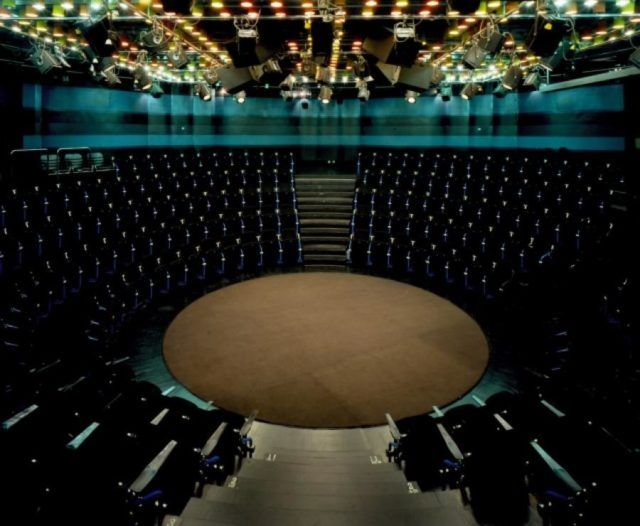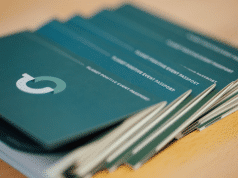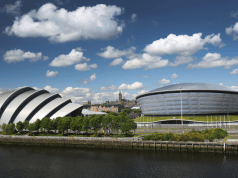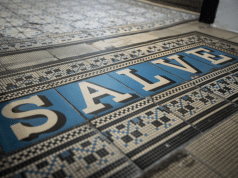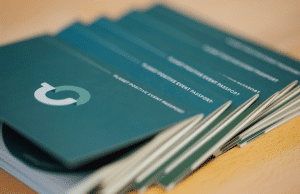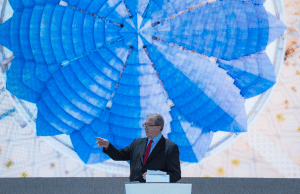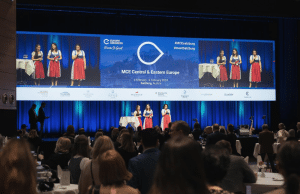In Slovenia, we have been in lockdown for 6 weeks now and some regulations are starting to loosen, resulting in various shops and services slowly starting to operate again. The meetings and tourist industry, however, are still on hold without any tangible information regarding their fate. Thus, Gorazd Čad from Toleranca Marketing organized a roundtable and invited industry professionals to share their thoughts and ideas about the industry’s future post coronavirus. The debate covered the pressing topics of the next possible events, measures companies are taking to survive the COVID-19 crisis and plans and predictions for future business and the future of events.
MEET THE ROUNDTABLE GUESTS
JAKA GORNIK, FM Agencija
BOŠTJAN HORJAK, Liberty International
MARTIN JEZERŠEK, Jezeršek Catering
MATJAŽ JUG, ETC Adriatic
MIHA KOVAČIČ, Slovenian Convention Bureau
ŽIGA NOVAK, Walnut Grove
JAN ORŠIČ, Ljubljana Tourism / Convention Bureau
BREDA PEČOVNIK, CD – Cultural and Congress Centre Ljubljana
What is the current situation?
As soon as people were instructed to work from home and self-isolate, everyone that could, complied. Of course, some work can be done remotely, but the prohibition of events took a large toll on the meetings industry. For many, no events and no tourists mean no income. Consequentially, clients started freezing accounts and postponing projects. Martin Jezeršek emphasized that the first decline in revenue was already seen in February, with the absence of Asian tourists and the same can be expected for the summer months, which are normally high season in Slovenia. According to Breda Pečovnik, all international events planned to take place at CD-Cultural and Congress Centre Ljubljana in the fall have been postponed or cancelled. This means the revenue loss will be enormous and CD predicts they will need at least 2 years to return to their standing before the crisis. What we all have to do now is focus on domestic events, there are enough to go around.
What can and should we do in the meantime?
Most guests believe that events will not properly take off before the fall. Some remain optimistic about smaller, local events already taking place at the end of May and in June. The expiration of travel restrictions and bans still remains unclear, so the prevailing opinion is that we have to momentarily focus on the domestic market.
During the time our ongoing projects are paused, we can reinvent our processes and transform our company so we will be more prepared for the next crisis says Žiga Novak. He also explained they are currently focusing on showing solidarity. They are supporting their customers when people are working from home and parents might be struggling to work and also help their school-bound children follow their at-home study programs. Žiga and his team decided to support their clients by virtually helping them with schooling their children, which lifts a large portion of their workload.
Martin Jezeršek underlined the importance of standing together and reminding the government that the tourism and meetings industry are very important for our country and that they should offer adequate support to help sustain the workforce. He himself has taken a very proactive approach from the start and sent a public letter to the government, demanding quick action on their part regarding the new measures and also gave feedback on the government’s decisions pertaining to the hospitality industry.
The general opinion is that the first corona package of the governmental support was a step in the right direction and successfully froze the situation for two months, helping companies to retain their workers. We should appeal, however, that measures be extended for the meetings and tourist industry as unlike shops that are opening again, not much will change for this sector in the next two months, stated Miha Kovačič. While waiting for the second corona package we should all be as proactive as possible and emphasize the importance of the MICE industry while loudly explaining our problems says Martin. Matjaž Jug is persistent that the second wave of governmental help should include financial aids for small companies, similar to what has been granted for all sole proprietors that have lost more than 20 % of their expected income.
A strong, coherent idea among the guests was that the meetings industry should step together and form a consortium. Jaka Gornik emphasized that by joining forces, finding common interests and strategies we could enter the international market as a larger meetings service provider. Miha Kovačič agreed that uniting is a smart solution to ensure everyone survives these problematic times.
What can we do about marketing right now?
According to Boštjan Horjak it is too soon for intense marketing since we don’t know yet until when the COVID-19 regulations will stay in place. We do, however, have to prepare for marketing when the time is right. Martin Jezeršek added that they are still communicating content, congruent with their vision to stay in touch with their customers. At the moment they are keeping it light and fun, sharing their most popular recipes and organizing online cooking workshops.
What can we expect in the future?
When it comes to tourism it is unclear whether travelling will be permitted this summer, but regardless we cannot expect a large influx of tourist and can realistically mostly expect Slovenian guests. Jan Oršič explains this will never cover the losses, as Slovenian tourists only account for 4–5 % of revenues. To encourage tourists and meeting planners to come to Slovenia, we will have to change our communication agreed the guests. Upon answering a short survey, enquiring whether they expect event participants will be wearing masks in the future, a resounding yes showcased that safety became a very big concern.
Miha Kovačič explained their strategy, how communications will now focus on presenting Slovenia as a clean, safe and non-crowded destination. This approach aims to assure and calm people, but the time is not right yet, this tactic will work after we have beaten the virus.
Jan Oršič proposed that one of the biggest challenges at the moment, concerning events, is living with uncertainty and not being able to predict how things will pan out. They are connecting with all their destination partners to provide support and try to collect as much information as possible and disseminate it within the industry.
Despite the current ambiguity, everyone remains optimistic about the future of the meetings industry. Žiga Novak pointed out that the need to socialize is in our DNA and the wish for live events and networking in the future will not fade. Jan Oršič added that despite all the virtual events, live meetings will not be forgotten, as the largest part of business deals is conducted after the official part of the event, which is near impossible to achieve online. Žiga also believes that we will experience a huge surge right after the restrictions are lifted, however, this probably won’t be equally dispersed in the entire industry. Furthermore, he expects higher demand for more basic services, and everyone will have to adjust to the new market needs.
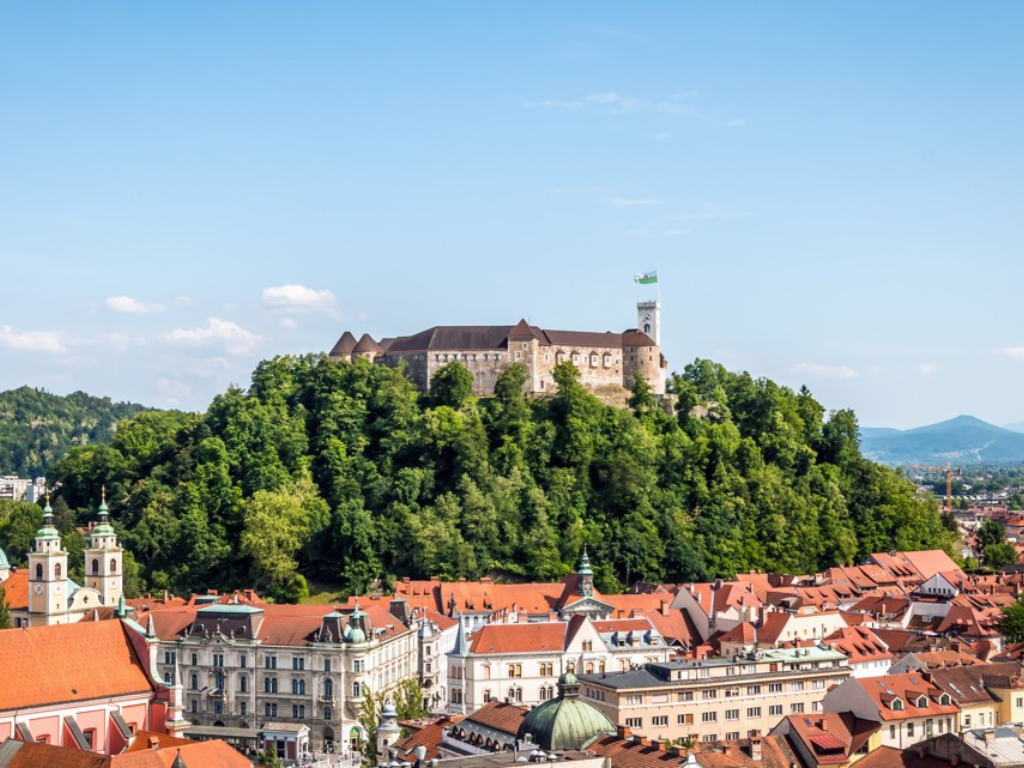
Where do we see the most potential in the months to come?
The question about where our guests see the most potential in the coming months revealed that the short-term focus will have to be on the domestic market and the neighbouring countries, but they were sceptical about the rest. There are too many factors in play, as Jan Oršič noted, we and our industry are dependent on being accessible, having open borders and good airline connections. The longer we stand still, the harder it will be to get back up and running and more changes in business behaviour are to be expected.
Boštjan Horjak predicts that in the next year and a half more events will be focused on the virtual environment and there will be less live meetings, mostly due to fear. He anticipates that once the general public overcomes this fear, things will start to change again. Žiga Novak added that human memory tends to be short if we look at history, for example after the last crisis it took us three years to forget and move forward. Boštjan continued that the most visible changes will happen in public spaces. The same happened after the increased terrorist attacks, where airport security was reinforced, now it will centre around health, e.g. wearing masks, disinfecting hands, … But he is sure our industry will eventually continue along with the same concepts as until now.
What about marketing after the crisis?
This time of working, meeting and socializing online made everyone understand the Internet better, thinks Matjaž Jug. He said their company is currently developing new products, applications and programs that cater to an online public. In terms of marketing, they can offer Internet and social media solutions. Miha Kovačič is in agreement on the online aspect and is certain virtual communication in business will remain important and more frequent than before. He explained that they are currently on the lookout for creative online tools that also include a personalized experience, to present Slovenia as a destination virtually.
Jaka Gornik is of the opinion that what matters in a time of adversity are good messages. They are what makes and reinforces brands in the long run. With good practices, the crisis can be shortened, but companies who ignore this have to be careful to not become irrelevant as old practices won’t cut it anymore.
In hospitality, marketing will be extremely important once things pick up again, believes Martin Jezeršek. He announced they will focus on communicating all the precautions they are taking to their guests to make them feel safe. After the first wave, they plan to promote the products they believe will be most sought after, like the Union Experience and Dvor Jezeršek.
After crisis destination marketing will not have to be adjusted too much, according to Jan Oršič, as Ljubljana and Slovenia have already been going in the right direction, developing a sustainable offering and emphasizing quality. They will continue emphasizing the values of the destination and as a whole, also highlighting how well and quickly the country adapted to the unforeseen coronavirus situation.
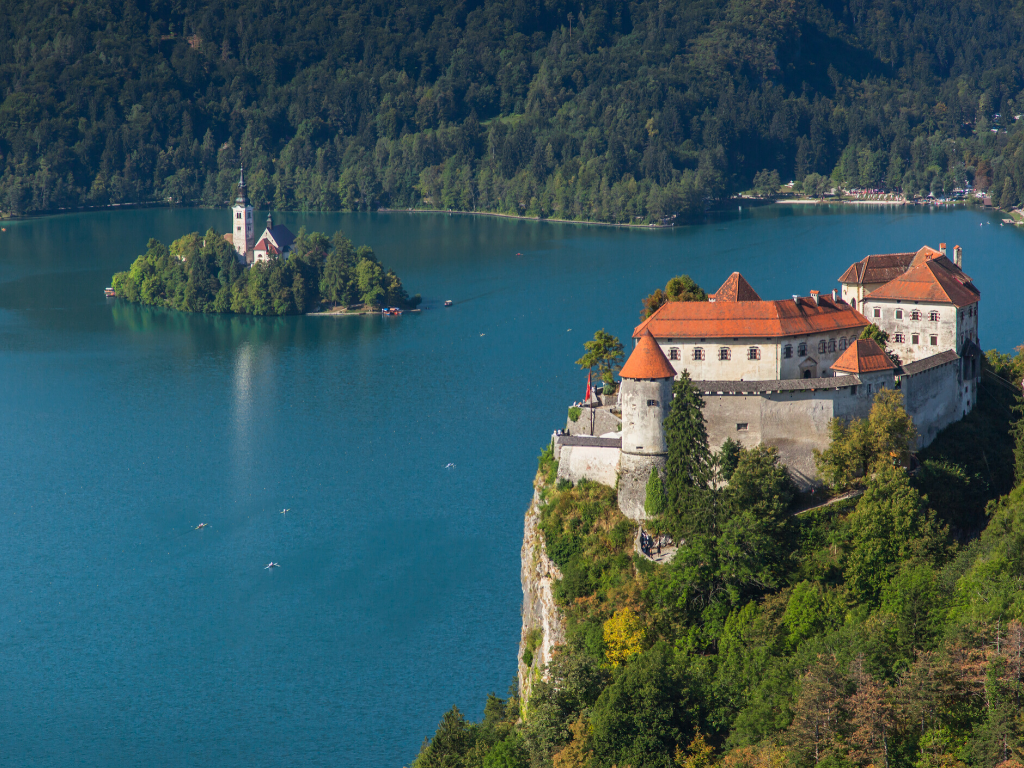
All in all, the prevailing opinion is that digital marketing will play a big role since everything moved online for the time being and people became more responsive. Despite the current crisis, people are still social beings and seeing how important live contact has been in our industry up until now, Boštjan doesn’t see that changing in the future and others agreed. Breda Pečovnik also added that we will have to focus intense marketing activities on a personal level if we want to bring international events to Slovenia again, and that cannot be achieved online.


